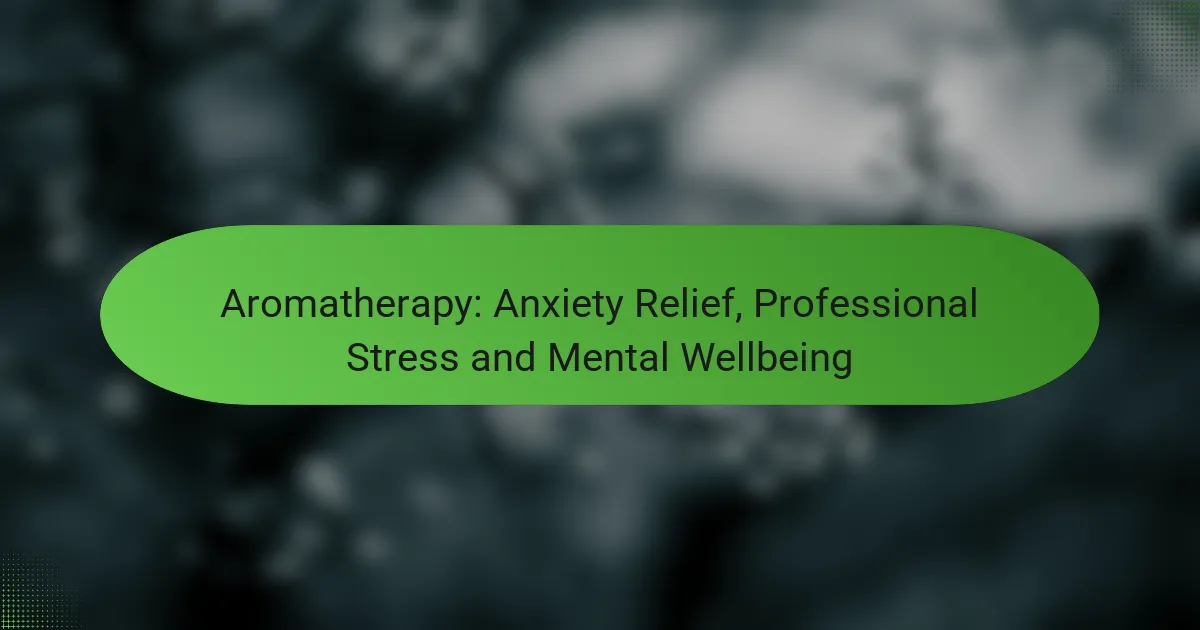Reiki healing is an effective method for reducing stress and promoting relaxation, making it a valuable tool for corporate wellness programs. By restoring balance to the body’s energy, Reiki fosters emotional well-being, which can lead to enhanced employee productivity and a more harmonious workplace environment. Implementing Reiki practices can help employees maintain mental clarity and focus, ultimately improving their performance and overall job satisfaction.

How Does Reiki Healing Reduce Stress?
Reiki healing reduces stress by promoting deep relaxation and restoring balance to the body’s energy. This holistic approach helps individuals release tension and fosters a sense of calm, making it an effective tool for stress management.
Promotes relaxation
Reiki sessions typically involve gentle touch or hovering hands, which encourage relaxation in both the mind and body. During a session, participants often experience a profound sense of peace, which can lower heart rates and reduce cortisol levels, contributing to overall stress relief.
To maximize relaxation, consider scheduling regular sessions, ideally in a quiet, comfortable environment. Many individuals find that even a single session can lead to noticeable improvements in their stress levels.
Balances energy
Reiki aims to balance the body’s energy systems, which can become disrupted due to stress and anxiety. By channeling energy, practitioners help realign these systems, promoting a state of equilibrium that supports mental clarity and emotional stability.
To maintain balanced energy, practice self-Reiki techniques or engage in mindfulness exercises between sessions. This can enhance the benefits received during professional treatments and contribute to long-term stress reduction.
Enhances emotional well-being
Reiki healing can significantly enhance emotional well-being by addressing underlying issues that contribute to stress. The calming effects of Reiki often lead to improved mood and a greater sense of control over one’s emotions.
Incorporating Reiki into a corporate wellness program can foster a supportive work environment. Employees who engage in Reiki may experience increased resilience, better communication, and enhanced teamwork, all of which contribute to a more productive workplace.

What Are the Benefits of Reiki in Corporate Wellness?
Reiki offers several benefits in corporate wellness, particularly in reducing stress and enhancing overall employee well-being. By promoting relaxation and emotional balance, Reiki can lead to a more productive and harmonious workplace environment.
Improves employee morale
Reiki sessions can significantly boost employee morale by providing a calming experience that alleviates stress. When employees feel relaxed and supported, their job satisfaction tends to increase, leading to a more positive workplace atmosphere.
Incorporating Reiki into corporate wellness programs can help employees feel valued and cared for, which fosters loyalty and commitment to the organization. Regular sessions can create a culture of well-being that enhances overall team spirit.
Reduces absenteeism
Implementing Reiki in the workplace can help reduce absenteeism by addressing stress-related issues that often lead to time off. Employees who participate in Reiki sessions may experience improved mental clarity and emotional resilience, making them less likely to take sick days.
Organizations that prioritize employee wellness through practices like Reiki often see a decrease in health-related absences, which can save costs associated with temporary replacements and lost productivity.
Enhances team collaboration
Reiki can enhance team collaboration by fostering a sense of connection and trust among employees. As individuals experience relaxation and stress relief, they are more likely to communicate openly and work together effectively.
Group Reiki sessions can serve as a team-building activity, encouraging employees to bond over shared experiences. This collaborative spirit can lead to improved problem-solving and innovation within teams, ultimately benefiting the organization as a whole.

How Can Reiki Healing Boost Employee Productivity?
Reiki healing can significantly enhance employee productivity by promoting relaxation and reducing stress levels. This holistic approach helps employees maintain mental clarity and focus, ultimately leading to improved performance in the workplace.
Increases focus and clarity
Reiki healing fosters a calm environment that allows employees to concentrate better on their tasks. By alleviating stress and anxiety, individuals can experience enhanced mental clarity, which aids in decision-making and problem-solving.
To incorporate Reiki into the workplace, consider offering regular sessions or workshops. This can help employees learn techniques to manage stress and improve their focus during work hours.
Reduces burnout
Reiki is effective in reducing burnout by promoting relaxation and emotional balance. Regular sessions can help employees recharge, preventing feelings of exhaustion and disengagement.
Organizations can implement short Reiki breaks during the workday, allowing employees to unwind and reset. Even brief sessions of 15-30 minutes can make a noticeable difference in overall well-being and productivity.
Encourages creativity
Reiki healing can stimulate creativity by creating a relaxed state of mind, which is essential for innovative thinking. When stress is reduced, employees are more likely to think outside the box and generate new ideas.
Encouraging creative practices alongside Reiki, such as brainstorming sessions in a tranquil setting, can further enhance this effect. Providing a supportive atmosphere allows employees to explore their creativity without the pressure of deadlines.

What Are the Best Practices for Implementing Reiki in the Workplace?
Implementing Reiki in the workplace effectively requires a structured approach that includes regular sessions, qualified practitioners, and a soothing environment. These best practices can enhance employee well-being and productivity, fostering a healthier work culture.
Schedule regular sessions
Regular Reiki sessions can significantly contribute to stress reduction and employee wellness. Aim for weekly or bi-weekly sessions to maintain consistent benefits, allowing employees to recharge and refocus. Consider offering these sessions during lunch breaks or at the end of the workday to encourage participation.
To maximize effectiveness, communicate the schedule clearly and allow employees to book appointments in advance. This approach ensures that everyone has access to the sessions and can plan their work around them.
Provide trained practitioners
Having trained and certified Reiki practitioners is crucial for the success of workplace Reiki programs. Look for practitioners with recognized certifications and experience in corporate settings, as they will be more adept at addressing the specific needs of employees.
Consider conducting background checks and verifying credentials to ensure the safety and professionalism of the practitioners. This step builds trust among employees and enhances the overall effectiveness of the Reiki sessions.
Create a calming environment
A calming environment is essential for effective Reiki sessions. Designate a quiet, comfortable space within the workplace where employees can relax without distractions. Soft lighting, soothing colors, and comfortable seating can help create an inviting atmosphere.
Incorporate elements such as calming music, essential oils, or plants to enhance the serenity of the space. Ensure that the area is easily accessible and that employees feel comfortable using it for their sessions.

What Should Companies Consider Before Adopting Reiki?
Companies should evaluate several factors before implementing Reiki as part of their wellness programs. Understanding employee interest and the associated costs can help ensure that the initiative is both effective and sustainable.
Assess employee interest
Determining employee interest in Reiki is crucial for its successful adoption. Conduct surveys or informal discussions to gauge how many employees are open to participating in Reiki sessions. A strong interest can lead to higher engagement and better outcomes.
Consider organizing informational sessions where employees can learn about Reiki and its benefits. This can help clarify misconceptions and increase enthusiasm, making it more likely that the program will be well-received.
Evaluate costs and resources
Before adopting Reiki, companies must assess the financial implications and available resources. Costs can vary widely based on factors such as the number of sessions, practitioner fees, and facility requirements. Establish a budget that aligns with your company’s financial capacity.
Additionally, consider the logistics of implementing Reiki sessions. This includes finding qualified practitioners, scheduling sessions during work hours, and ensuring a suitable space for relaxation. Weigh these factors against potential benefits like improved employee well-being and productivity.

How Do Different Cultures View Reiki Healing?
Reiki healing is perceived differently across various cultures, often influenced by local beliefs and practices. While it is widely embraced in Japan as a spiritual practice, Western cultures tend to view it more as a complementary therapy for stress relief and wellness.
Japanese Perspective on Reiki
In Japan, Reiki is rooted in Shinto and Buddhist traditions, emphasizing spiritual growth and healing. Practitioners believe in the vital life force energy, or “ki,” which flows through all living things. Reiki is often used as a tool for personal development and spiritual enlightenment, focusing on the balance of energy within the body.
Western Adaptations of Reiki
In Western countries, Reiki has been adapted primarily as a holistic healing method. It is commonly used in wellness centers and corporate wellness programs to reduce stress and promote relaxation. Many people view Reiki as a non-invasive way to enhance overall well-being, often integrating it with other health practices like meditation and yoga.
Reiki in Other Cultures
Other cultures have also embraced Reiki, often blending it with their traditional healing practices. For instance, in some Indigenous cultures, energy healing is part of a broader spiritual framework that includes rituals and community support. This integration highlights the universal appeal of Reiki as a method for achieving balance and harmony.



